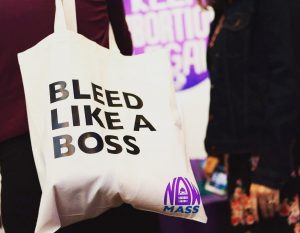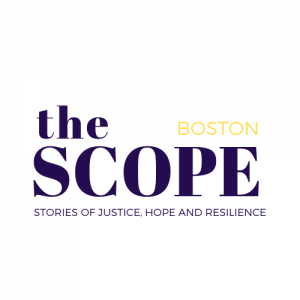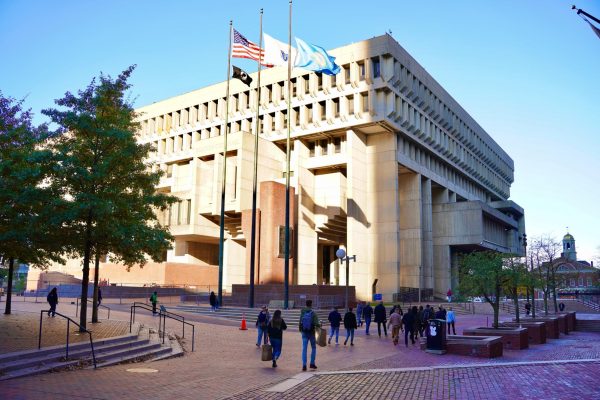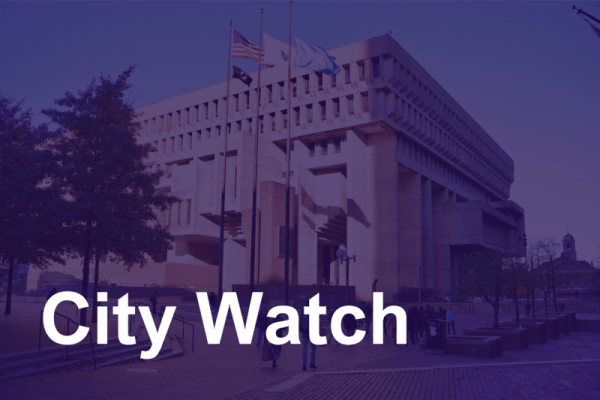Boston City Council passed resolution condemning racist tactics used by ICE
The city council passed dockets aiming to reduce sharps disposed improperly on the streets and to place a ballot box outside houses of incarceration in Boston during this week’s virtual Boston City Council meeting. The council also discussed ways to respond to racist incidents in the city and what can be done to relieve student debt.
The following five dockets were discussed:
Safe sharps disposal program for pharmacies – Docket #0226
The docket, meant to enact a safe sharps disposal program for pharmacies, has been amended and presented by Councilor Lydia Edwards, chair of the Committee on Government Operations. Over 100 new disposal sites for sharps, such as needles and syringes used by residents at home, will be created with the passage of the docket, marking a major response from the city in the wake of the opioid crisis.
The amended ordinance also removes the responsibility for safe sharps disposal by the manufacturer of the sharps, and onto the distributors — the pharmacies. Pharmacies in Boston with more than four locations will be required to enact safe, environmentally sound sharps collection services at no cost to Boston residents within the next year. “The biggest players in the room must play a role,” Edwards said, referring to pharmacies.
The number of sharps disposed of improperly exceed the city’s capacity for collection and residents and children have regularly pricked themselves on improperly disposed sharps, said Councilor At-Large Annissa Essaibi George. Last year, the city collected over 700,000 needles from parks, sidewalks, and other public spaces.
The docket was amended and adopted unanimously.
Hearing of residents most affected by student debt in the pandemic – Docket #0888
“We are dealing with two different pandemics right now. There is a COVID-19 pandemic, but there is also a pandemic of racial inequality, and student debt is a great example of that,” said Councilor At-Large Julia Mejia.
Massachusetts is in the bottom third of states offering assistance to students with debt, and Edwards reminded the city council that many of Boston’s investments in retirement funds are invested through student debt and loan carriers. “The city of Boston is invested in maintaining student debt,” Edwards said.
The docket remains in committee.
Resolution condemning the racist and predatory tactics used by ICE in Boston – Docket 1055
Mejia and Councilor Andrea Campbell collaborated on the docket in the wake of a racist incident involving ICE two weeks ago, when Bena Apreala — a Black man — was stopped while jogging along the VFW Parkway by ICE agents in two unmarked vehicles, a poignant rallying moment for Boston’s Black Lives Matter movement.
Mejia shared her own experiences and fears of ICE as an immigrant, telling the council that “we have an obligation as leaders in our city to do everything that we can to make sure everyone feels safe and welcomed here.”
The ACLU has since taken on Apreala’s case against ICE, and the Boston City Council emphasized the need for conversations about sanctuary spaces. Campbell added that “there are tragic examples of particularly Black and brown men being profiled, targeted and murdered for just walking or running in their own neighborhood. That should not happen anywhere, and certainly not in the city of Boston.”
The docket was adopted.
Resolution in support of the BREATHE Act – Docket #1056
Council President Kim Janey and Councilor Kenzie Bok introduced a docket publicly supporting the BREATHE Act, a recent Congressional bill presented by the Electoral Justice Project of the Movement for Black Lives. This docket represented efforts by the council to support Rep. Ayanna Pressley, who introduced the BREATHE Act in collaboration with Rep. Rashida Tlaib of Michigan earlier this year.
The BREATHE Act consists of four main parts: divestment from incarceration, investment in non-carceral community systems, prioritizing community funding and holding political leaders accountable for empowering their Black communities. “There is still more work to do in dismantling the many barriers that continue to be prevalent and continue to change the record. In some instances we need to break the record altogether,” Janey said of the bill.
Councilor Frank Baker and Councilor At-Large Michael Flaherty called for the resolution to move into committee, so that the BREATHE Act could be read in full by the council before they publicly supported it.
The motion was rejected, and the docket was adopted.
Placement of ballot boxes outside houses of incarceration – Docket #1057
Campbell, Mejia and Edwards presented this resolution to increase the number of ballot boxes in Boston. According to the city, all ballot boxes must reside on publicly owned land in locations that voters are familiar with, and be under constant surveillance. Prisons and jails meet this description, but have not been recognized as potential locations for drop boxes.
“Our lives are at the ballot this year,” Mejia said. “Every single vote will matter—believe me, I know. I won by one.” She said that 17 ballot boxes placed at these locations would counteract historical voter suppression against incarcerated people who retain their right to vote.
Edwards added that between 8,000 and 10,000 eligible voters are in custody in Suffolk County and the city of Boston, emphasizing that “it’s about not dismissing the humanity of people who are incarcerated.”
The docket was adopted.








